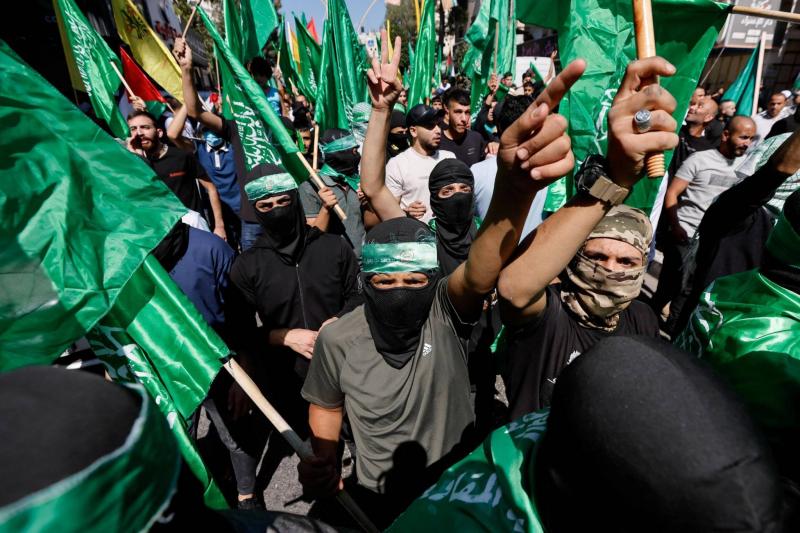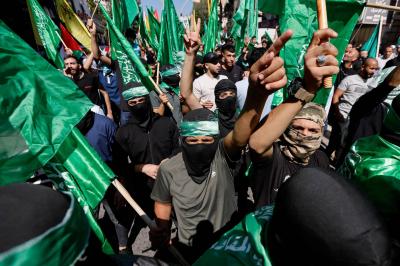Since launching the "Al-Aqsa Flood" operation, the Islamic Resistance Movement (Hamas) has faced campaigns from the Israeli entity and the U.S. administration, which quickly fell apart as they were based on Israeli propaganda. Those spreading these claims mistakenly believed they could label Hamas as aligned with ISIS, and accusations of killing children and raping women were dismissed. Hamas's policies have also been met with harsh criticism from circles close to Arab regimes, stemming either from a rejection of political Islam or the Muslim Brotherhood or from views that believe Hamas miscalculated the consequences of such a large-scale operation and the level of Israeli retaliation.
In Lebanon, criticism of the movement arose from opposition to its military actions in the southern front and fears of escalating conflict within Palestinian camps or the possibility of the movement being drawn into internal strife due to its alliance with Hezbollah, recalling the PLO's involvement in the civil war. A leadership source in Hamas opened the discussion on these matters through "Nidaa Al-Watan," considering this commentary as a direct message to political and social forces to engage with it based on what it contains regarding the movement's vision for the Lebanese reality, its relations with political forces, and its relationship with Christians in Palestine and their participation in political life, as well as its stance on Christian and Islamic sanctities.
The source reminded that the "Al-Aqsa Flood" operation came after 17 years of killing and siege imposed by the occupation on the Gaza Strip. Therefore, it was imperative to strike a blow to break the occupation's back. Additionally, the existence of thousands of prisoners in jails without a prospect for their liberation necessitated the abduction of a number of Israelis to empty the prisons, noting that the number of prisoners is 6,000, with 1,500 belonging to Hamas and the rest to Fatah and other factions.
The step taken here is not partisan but is linked to the struggle of the Palestinian people as a whole, and it is crucial to put an end to the Israeli occupation's violations of Islamic and Christian sanctities: the Al-Aqsa Mosque and the Church of the Holy Sepulchre. This was emphasized in several historical moments, including 2021, which was marked by simultaneous attacks on both the Al-Aqsa Mosque and the Church of the Holy Sepulchre.
The source clarified that in the 2006 elections, three lists ran for Jerusalem: Hamas, Fatah, and independents (Palestinian leftists). Three Christians ran on the Hamas list due to the city's symbolism, and all three candidates won, as the list garnered 90% of the votes from Christians in Jerusalem, and 70% of Christian votes throughout Palestine also went to the movement. This was also the case in Ramallah, Al-Bireh, Bethlehem, and Gaza City, which has 10,000 Christians who are an integral part of the Palestinian national fabric and support the movement, with their relationship characterized by national solidarity as is the case throughout Palestine, where there is no sectarian problem among its people.
The leadership source in Hamas emphasized the movement's independence in its political and military decision-making, reminding that prior to October 7, there were two confrontations initiated by the Islamic Jihad Movement based on external decisions that Hamas did not engage in because it did not find that decision to serve a national interest. The battle should be fought under a significant banner, such as sanctities and prisoners, so opening it or participating in it cannot be justified when severe consequences would be incurred. The movement also responded to statements from Iranian officials who considered the "Al-Aqsa Flood" operation as revenge for the late Quds Force commander Qassem Soleimani.
The source pointed out that Hamas is committed to keeping the battle with the Israeli entity within Palestine, despite receiving blows outside it. Its military work in Lebanon falls within the governmental equation and is coordinated with a key Lebanese player that has government backing and operates according to rules of engagement.
The source highlighted that Hamas contributed significantly to reaching a "unified Lebanese vision on Palestinian refugee issues in Lebanon," as declared on July 20, 2017, by the Lebanese working group on Palestinian refugees, which was formed within the framework of the Lebanese-Palestinian National Dialogue Committee with the participation of representatives from seven parliamentary blocs, including Hezbollah, Future Movement, Free Patriotic Movement, Lebanese Forces, Progressive Socialist Party, and Amal Movement, along with the Palestinian Joint Action Authority comprising the PLO and the Coalition.
Many clauses of this document originated from ideas proposed by Hamas, including a balance between rights and obligations. It rejected viewing the Palestinian people solely from a security perspective, advocating that political, humanitarian, social, and cultural dimensions should also be taken into account when approaching the Palestinian situation.
While acknowledging the position of MP Ashraf Rifi, who fairly regarded Hamas and rejected labeling it as terrorism, seeing it as a resistance and national liberation movement, the source asserted that Hamas endeavors to cleanse memory from the impacts of the Lebanese civil war in all its dimensions. In all stages of internal conflict since 2005, it worked to prevent the camps from being a launching pad for destabilizing security in Lebanon and rejected being a mailbox for anyone, contributing to establishing a special relationship with Lebanese security apparatuses, particularly the Army Intelligence, and cooperated in many files.
The source noted that Hamas considers two major issues to be a red line that cannot be crossed:
- The first file relates to collaboration and Israeli infiltration, which involves cooperation with the Lebanese state.
- The second file concerns terrorism, which Hamas sees as a serious threat to everyone, thus cooperating with Lebanese security forces to combat the infiltration of this phenomenon into the camps.
The source also affirmed that Hamas adheres to the law, as demonstrated when they lost three of their leaders in Al-Burj Al-Shamali camp; they resorted to the Lebanese judiciary instead of seeking revenge or escalating confrontation in the camps.
The leadership source in Hamas expressed understanding for the existence of opposition to the movement's orientations in light of Lebanese diversity, emphasizing that the movement is open to dialogue with everyone about the Palestinian reality to clarify its vision and benefit from the opinions of supporters and opponents alike, building on them for the next phase.




